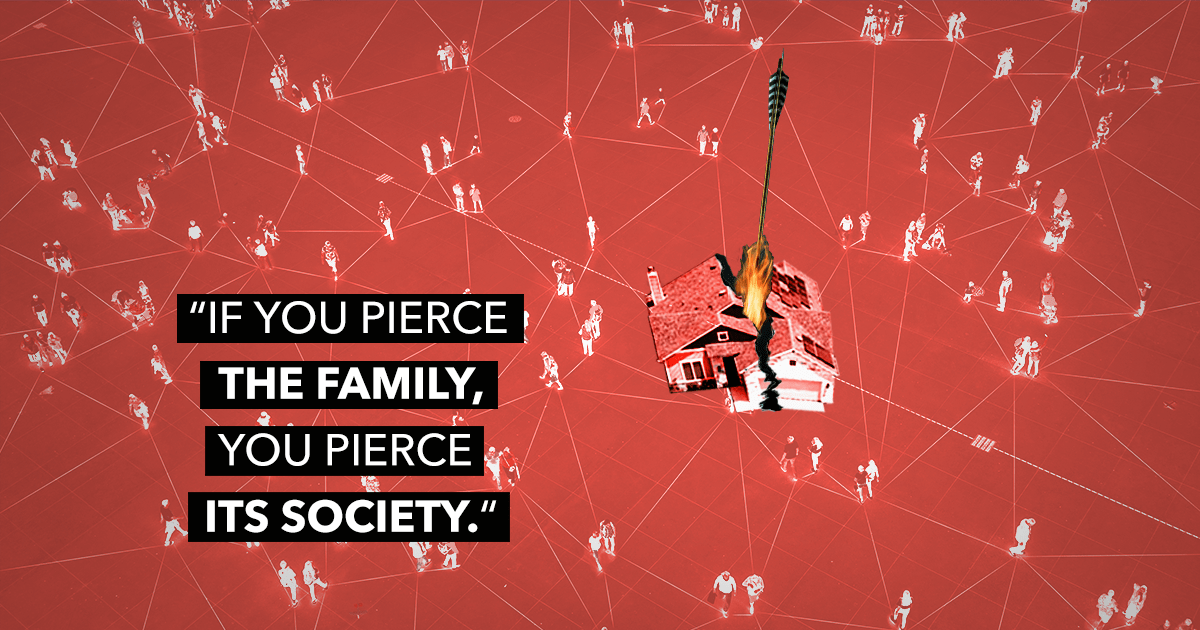Chad was a laid-back guy who liked the outdoors and spent a lot of time hiking and mountain biking. One summer day we took a late afternoon walk together in a wooded area. I was so engaged in our conversation that I hadn’t noticed it was getting dark.
Soon it was pitch black.
I'd never been in a situation like that before and I had no idea how we were going to get back to the car without a flashlight. But Chad had walked these trails many times, even at night, and he knew them well.
So he led the way and walked the narrow path in front of me as I held on tightly to him. With his presence and woodland wisdom, I was less afraid. Nearly an hour later we arrived safely back at his car and drove away.
That evening, I needed a trail guide to get me through an intensely dark time (literally). I had to trust and rely on someone who knew where he was going and could lead me safely home even when I could not see the way.
Isn't it reassuring to know that God can see in the dark even when you cannot?
Psalm 139:11-12 reminds us, "…even the darkness will not be dark to you; the night will shine like the day, for darkness is as light to you."
One thing I've learned is that knowing about God is one thing, knowing His close presence and trusting Him—in the dark or the light—is quite another.
In a relationship, the more you know someone, the more you can trust him. The same is true with God.
The more we know God, the more we trust Him.
However, many of us have distorted images of what God is really like. Because of our own ignorance, a pastor's misrepresentation, childhood issues, or other reasons, we may think God is something He is not.
How do we learn what God is like?
We look to the Word of God, the Bible. Here, we learn about God’s attributes—his character traits. Some of them include:
- His grace (Ephesians 2:8)
- His compassion (Psalm 103:13)
- His forgiveness (Luke 7:48)
- His mercy (Lamentations 3:22-25)
- His comfort (Psalm 94:19)
- His wisdom (1 Corinthians 1: 20-30)
- His guidance (Psalm 43:3)
- His freedom (John 8:36)
- His healing (1 Peter 2:24)
- His goodness (Psalm 145:9)
- His provision (Matthew 6:25-24)
- His peace (John 14:27)
But perhaps the brightest "light" of God's character is His love.
God’s love is amazing. Despite our failures and imperfections, God accepts us. He doesn't reject us. He never leaves us. No matter who you are or what you’ve done, God’s unconditional love and forgiveness reaches out.
We just need to choose to reach back.
And when we do, we discover that love changes everything.
When God shows us love has limits, we may think He is being unkind, when in reality He is working things out for our benefit. For instance, when you want the answer to be "yes" and God says "no," that doesn’t mean He loves you less. It means He is wiser. He is not withholding from you; God is protecting you.
God's love also helps us to love others.
Loving people—even those who are hard to love—is less challenging when we are replenished with the love of God in us.
When we are filled up with God's love we are not as frantic, fearful, or frustrated in relationships.
A calm knowing settles in so we can be ourselves, accept people as they are, and not try to control things all the time. We can cease striving.
And, when we are full of God's love, not starving for love and approval from others, we can make better choices in the people we date or eventually marry.
Max Lucado says, "When you know God loves you, you won’t be desperate for the love of others."
As we come to know more about God and learn to trust Him, a connection grows. We are no longer living from our head but from our heart. And when we experience God in our daily life, when we truly connect, we are never the same.
Neither is the world around us.












